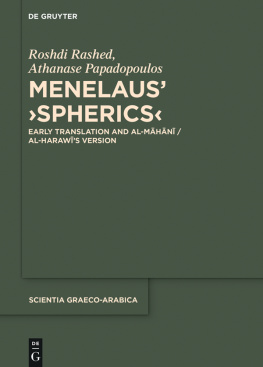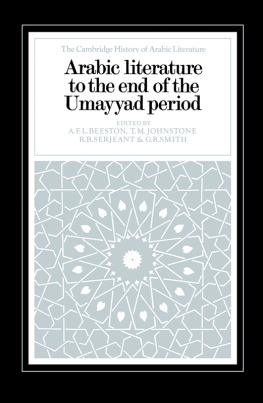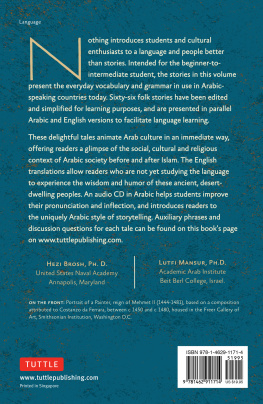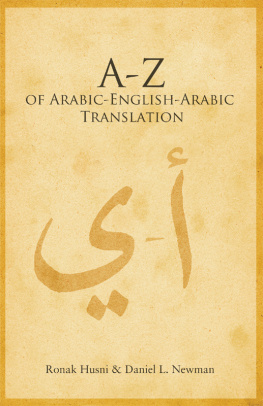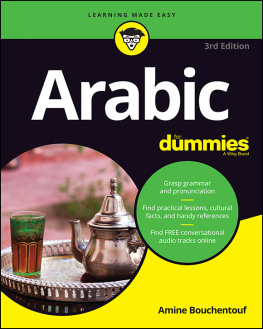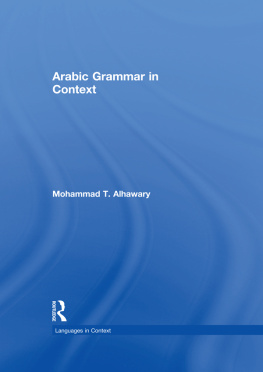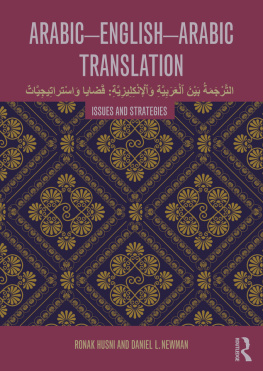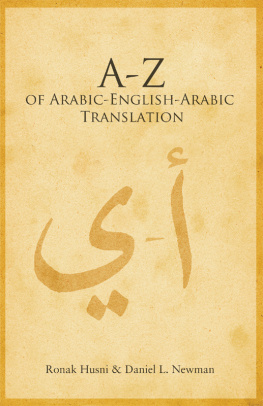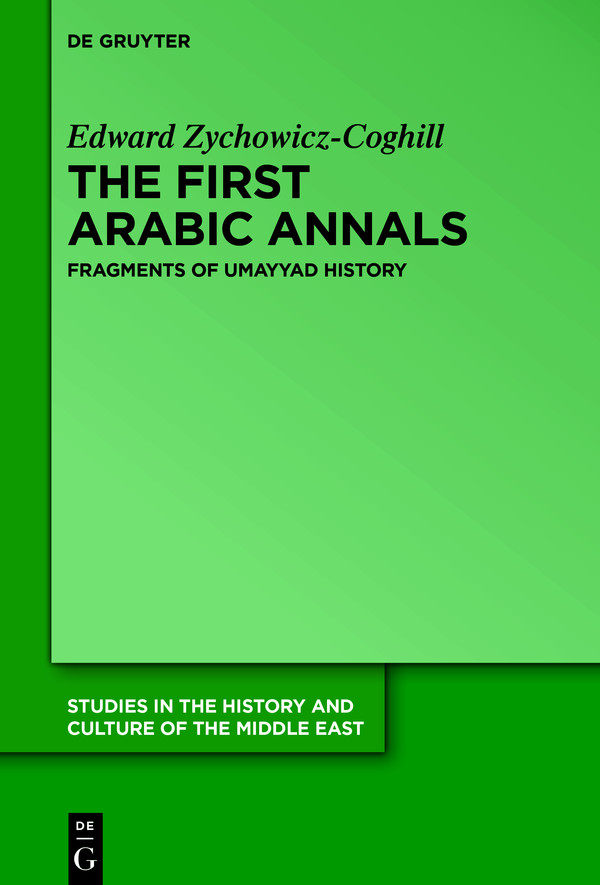Studies in the History and Culture of the Middle East
Edited by
Stefan Heidemann
Gottfried Hagen
Andreas Kaplony
Rudi Matthee
Kristina L. Richardson
Volume
ISBN 9783110712650
e-ISBN (PDF) 9783110712896
e-ISBN (EPUB) 9783110712940
Bibliographic information published by the Deutsche Nationalbibliothek
The Deutsche Nationalbibliothek lists this publication in the Deutsche Nationalbibliografie; detailed bibliographic data are available on the Internet at http://dnb.dnb.de.
2021 Walter de Gruyter GmbH, Berlin/Boston
Introduction: An Arabic History from 8th-Century Egypt
The aim of this book is to demonstrate that it is possible to reconstruct much of the content, scope, and even form of a piece of Arabic historical writing from the mid-8th-century CE, the -Tarkh of al-Layth b. Sad (d. 175 H/791 CE). I will argue that it is most plausibly a piece of late Umayyad annalistic historical writing whose existence has, to my knowledge, not previously been discussed, substantial amounts of which can be identified through its quotation in later texts. We have access to very few firmly attributable samples of 8th century Arabic history-writing. Yet, as Patricia Crone has noted, an Umayyad tradition of chronography and lists of office-holding must underlie the Arabic historical records remarkable ability to preserve names of early political actors, which can be confirmed through non-literary sources. Al-Layths -Tarkh is a part of that tradition which we are now able to inspect.
Historical annals have not featured heavily in discussions of early Islamic historiography, which have tended to focus on the more Arabic-specific type of isnd-khabar historical writing: compilations of short, discrete narrations of events written in a vivid, even hard-boiled style. In this book I will argue rather that annalistic records of events were a part of the developing tradition of Arabic historical writing from its inception in the Marwnid period, that we have the material to trace the development of Arabic annalistic history before our earliest extant examples of it, and that al-Layths lost -Tarkh is an important part of that story.
We will see that al-Layths Tarkh is a pretty scant dating record of events. As such, it might not be viewed as a particularly promising topic for the historian. Hayden White, however, long since demonstrated the possibility for reading even the barest annalistic record as a representing a particular notion of reality. The stories which we tell about early Islamic history are responses to the stories which early Muslims chose to write about themselves, stories in which memories of the past be they living or preserved through technologies of remembrance such as writing or oral instruction and memorisation were made meaningful through inclusion in particular narrative structures. The laconic account of historical annals might seem like a disinterested provision of neutral data, but in their brevity they are if anything even more selective and programmatic than other types of historical writing, constructing a remembered past which privileges as significant particular categories of information and historical processes. As such, al-Layths -Tarkh is an important witness to how Islamic history and time were envisaged in one of the earliest Arabic histories ever written.
Furthermore, while Arabic annals were not as voluminous as the more lively khabars which make up most of the text of our extant early Arabic histories, they ultimately did provide one of the key frameworks through which historians such as al-abar presented the rich data of the Arabic historical tradition. Al-abar himself makes it clear that he is reliant on earlier authors who had developed chronologies of events based on the hijr calendar, repeatedly invoking the same isnds to them in order to provide brief dating notices. The surviving fragments of the annalistic works of these well-known figures has not, to my knowledge, been the subject of sustained study. That is not the goal of the current book, however, which instead focusses on al-Layths Tarkh, unused by al-abar, which is as early or earlier than them all, and emerged in the quite different circumstances of 8th-century Egypt.
Al-Layths Tarkh is not now extant, but later medieval Muslim scholars were aware of its existence and had access to it. The 10th-century Egyptian historian al-Kind (d. 350 H/961 CE) refers explicitly to information he found in the Tarkh al-Layth b. Sad (History of al-Layth b. Sad) in his Kitb wult Mir (The Governors of Egypt); Ibn al-Nadm (d. c. 385388 H/995998 CE) ascribes a Kitb al-tarkh to al-Layth in his -Fihrist, an attempted catalogue of all Arabic literature composed in Baghdd; and a later Ifahn scholar Yay b. Abd al-Wahhb (d. 511 H/1118 CE) was known by al-Samn (d. 562 H/1166 CE) to possess a manuscript of the Tarkh al-Layth b. Sad in the riwya (recension) of al-Layths student Ibn Bukayr. and one later book directly reliant on another, different 9th-century work. A scattering of further, minor witnesses confirm that these works are all reliant on the same earlier text. Altogether, these extensive extracts allow us to examine the content and form of this previously unstudied Tarkh.
Chapters 14 of this book show how these fragments have been selected and how they can be firmly identified as quotations of or, in some cases, paraphrases from al-Layths Tarkh, arguing that the identified fragments constitute just over half of the original work. Chapter 5 presents and analyses the scope and content of the work. Chapter 6 discusses its author and the context which produced it. After concluding remarks, an edition and translation of the extant fragments is provided.
Using isnds to Identify Quotations of Books
The proliferation of quotation, accompanied by chains of citation (isnds), in Arabic works has led to many attempts to reconstruct lost sources and important, critical discussions about the potential pitfalls of trying to do so. The method which I use to recover fragments of al-Layths -Tarkh is rooted in finding common passages in multiple, independent later works which explicitly state that al-Layth was the original source of the common material in order to identify citation-markers in those later works which genuinely point to extracts from a text in circulation. This approach is allied to criticism of both the form and content of the passages attached to these citation-markers which demonstrates that the circulating text had a coherent, annalistic organisational structure and routinely recorded information of particular, limited types, all of which together indicates the circulation of a self-consciously composed early historical text.
Tracing the lost Tarkh of al-Layth mentioned in bibliographic or biographical sources requires more than simply collecting every instance in an extant work where al-Layth appears in a chain of transmission (isnd) invoked to authorise an historical anecdote (khabar, pl. akhbr). Such uncritical methods of reconstructing early texts have been long debunked.
The reason we must look for patterns in isnds, rather than explicit attributions of al-Layths -Tarkh, is that in many cases pre-modern Arabic authors would introduce a quotation from an earlier work not by naming the source works composer and title, but rather by presenting the riwya through which they had authorised knowledge of the earlier work. This


